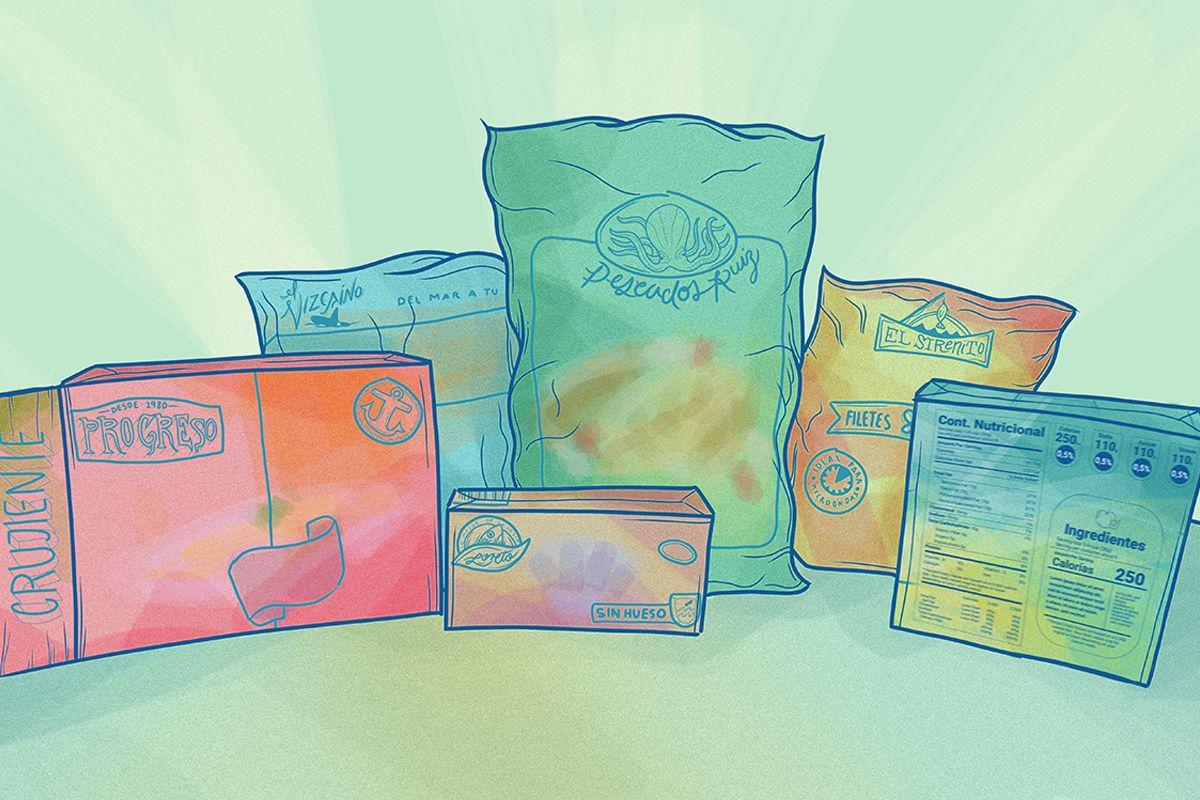Mexico is at the international forefront of health-focused food and beverage labeling, which includes legends that indicate excess sugar, fat, sodium, among other things, said Alejandro Calvillo, director of the civil organization El Poder del Consumidor.
“It's a labeling standard for food and non-alcoholic beverages and well, not just this warning label is more specific, but all the labeling that comes with it,” he said.
Despite these efforts, in the case of fish and seafood, the information found on the labels is insufficient for responsible purchasing, according to the study “From the sea to the supermarket: The sale of sustainable fish and seafood”, prepared by the Applied Research Unit of Causa Natura Center.
This work evaluated compliance with the Official Mexican Standard NOM-051-SCFI/SSA1-2010 (NOM-051), which regulates the information criteria that labels must include, and whether they showed clear, complete and reliable additional information on fish products sold canned, packaged and frozen in supermarkets.
“The company that brings the already packaged product to the market must comply with everything established by that labeling standard,” Calvillo explained.
The results of the evaluation, consisting of visits to 17 establishments corresponding to the Walmart, Soriana, Chedraui, H-E-B, Costco and La Comer groups, demonstrate the compliance of the products they offer with respect to the standard.
In the case of canned and packaged products, all of them fully comply with the guidelines. Whereas frozen ones stick between 95% and 100%.
The Journalism Unit of Causa Natura Media sought comment from these supermarket groups without getting a response about their labeling policies.
Bulk sales
Bulk products are not subject to NOM-051, but to a labeling made by supermarkets and found in the fresh area.
“You have that labeling, which is price and weight, the labeling you do to sell the industry, you can buy the product in bulk, for example fish, they buy large quantities and then they already package it or even you go and choose the pieces, they weigh it and label the price according to the weight,” said Calvillo.
In this class of products, there is generally no information about the species marketed and their origin, points out the study by Causa Natura Center. Therefore, it recommends displaying more information on the shelves, including: the scientific name of the species, its origin, the social name of the person who fished or cultivated the product, the date, and if it has any certification.
Additional Information Needed
Currently, the standard includes information criteria such as product name, ingredients, net content and drained mass, company name, country of origin, batch identification, expiration or preferred consumption date and nutritional information, and it is the responsibility of companies to comply with this labeling.
“There it is established that they have to report the content in milliliters or milligrams or grams, there is a nutritional table, a list of ingredients that they have to put in order of importance of content,” said Calvillo.
“The one who monitors compliance with the fact that the products are labeled correctly is Cofepris,” he added.
The Causa Natura Center report includes a series of additional criteria that, although not required by Mexican legislation, are based on proposed standards that would help consumers make a more informed purchase.
Among these are: scientific name of the species, geographical area of capture or cultivation, wild fishing or cultivation, method of capture and social and/or environmental responsibility seals such as those that indicate if it is a certified, qualified product, in the process of improvement or with socio-environmental badges.
With regard to additional criteria to the standard, it was possible to find products that have social and environmental responsibility seals, the scientific name of the species and whether it is fishing by capture or cultivation.
Some of the brands that stand out in this regard are Frinsa- La Conservera, Foncardè Gourmet, Del Pacfico Seafoods, Todo Marisco, Regal Springs, Marativa and H-E-B Reserva Responsible.
Responsibility
Causa Natura Center recommends, among several aspects, that retailers require suppliers to require additional information on labels to know the origin and management of products, such as the scientific name of the species, origin, social name of the person who fished or cultivated the product and the date, and thus influence sustainable production.
“Although labeling is not the direct responsibility of retailers, it is considered a great opportunity for them to demand from their suppliers additional information such as the one mentioned above; and particularly, in the case of bulk products, information similar to pre-packaged products is provided to prevent the possible commercialization of products of illegal origin”, concludes the study.
*This note is part of series #PescadoenelSupermercado, which reports on the standards of fisheries sustainability in the Mexican market.



Comentarios (0)